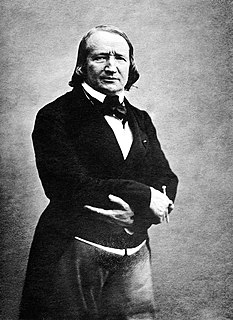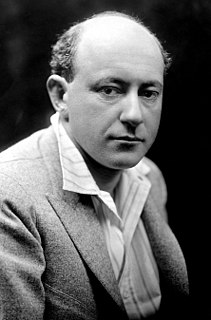A Quote by Robert Ardrey
The city is a cultural invention enforcing on the citizen knowledge of his own nature. And this we do not like. That we are aggressive beings, easily given to violence; that we get along together because we must more than because we want to, and that the brotherhood of man is about as far from reality today as it was two thousand years ago; that reason's realm is small; that we never have been and never shall be created equal; that if the human being is perfectible, he has so far exhibited few symptoms - all are considerations of man from which space tends to protect us.
Quote Topics
About
Aggressive
Along
Because
Been
Being
Beings
Brotherhood
Brotherhood Of Man
Citizen
City
Created
Cultural
Easily
Enforcing
Equal
Far
Few
Get
Given
His
Human
Human Being
Invention
Knowledge
Like
Man
More
Must
Nature
Never
Own
Protect
Reality
Realm
Reason
Shall
Small
Space
Symptoms
Tends
Than
Thousand
Thousand Years
Today
Together
Two
Us
Violence
Want
Which
Years
Years Ago
Related Quotes
The man of frank and strong prejudices, far from being a political and social menace and an obstacle in the path of progress, is often a benign character and helpful citizen. The chance is far greater, furthermore, that he will be more creative than the man who can never come to more than a few gingerly held conclusions, or who thinks that all ideas should be received with equal hospitality. There is such a thing as being so broad you are flat.
In his scientific genius, man has wrought material miracles and has transformed his world. He has harnassed nature and has developed great civilizations. But he has never learned very well how to live with himself. The values he has created have been predominantly materialistic; his spiritual values have lagged far behind. He has demonstrated little spiritual genius and has made little progress toward the realization of human brotherhood. In the contemporary atomic age, this could prove man's fatal weakness.
We have been led to imagine all sorts of things infinitely more marvelous than the imagining of poets and dreamers of the past. It shows that the imagination of nature is far, far greater than the imagination of man. For instance, how much more remarkable it is for us all to be stuck-half of us upside down-by a mysterious attraction, to a spinning ball that has been swinging in space for billions of years, than to be carried on the back of an elephant supported on a tortoise swimming in a bottomless sea.
The science of psychology has been far more successful on the negative than on the positive side... It has revealed to us much about man's shortcomings, his illnesses, his sins, but little about his potentialities, his virtues, his achievable aspirations or his psychological health... We must find out what psychology might be if it could free itself from the stultifying effects of limited, pessimistic and stingy preoccupations with human nature.
Man has made 32 million laws since THE COMMANDMENTS were handed down to Moses on Mount Sinai more than three thousand years ago, but he has never improved on God's law. THE TEN COMMANDMENTS are the principles by which man may live with God and man may live with man. They are the expressions of the mind of God for His creatures. They are the charter and guide of human liberty, for there can be no liberty without the law.
No one has yet discovered or ever shall discover what God is in His nature and essence... we shall, in time to come, 'know as we are known' (I Cor 13:12). But for the present what reaches us is a scant emanation, as it were a small beam from a great light - which means that any one who 'knew' God or whose 'knowledge' of Him has been attested to in the Bible, has a manifestly more brilliant knowledge than others not equally illuminated. This superiority was reckoned knowledge in the full sense, not because it really was so, but by the contrast of relative strengths.
All beings so far have created something beyond themselves; and do you want to be the ebb of this great flood and even go back to the beasts rather than overcome man? What is the ape to man? A laughingstock or a painful embarrassment. And man shall be just that for the overman: a laughingstock or a painful embarrassment.
A small knowledge of human nature will convince us, that, with far the greatest part of mankind, interest is the governing principle... Few men are capable of making a continual sacrifice of all views of private interest, or advantage, to the common good. It is vain to exclaim against the depravity of human nature on this account; the fact is so, the experience of every age and nation has proved it and we must in a great measure, change the constitution of man, before we can make it otherwise. No institution, not built on the presumptive truth of these maxims can succeed.
Only because of the striving nature of men has mankind achieved what it has so far. Men are made that way; they are designed to reach out for things which they cannot see with their eyes but can only imagine. A man naturally seeks after his dream, his ideal, while women are more concerned with the here and now rather than the future, intangible realm.
This was Barrington Erle, a politician of long standing, who was still looked upon by many as a young man, because he had always been known as a young man, and because he had never done anything to compromise his position in that respect. He had not married, or settled himself down in a house of his own, or become subject to the gout, or given up being careful about the fitting of his clothes.
No one can travel so far that he does not make some progess each day. So let us never give up. Then we shall move forward daily in the Lord's way. And let us never despair because of our limited success. Even though it is so much less than we would like, our labour is not wasted when today is better than yesterday!
Nothing is more human than for man to desire naturally things impossible to his nature. It is, indeed, the property of a nature which is not closed up in matter like the nature of physical things, but which is intellectual or infinitized by the spirit. It is the property of a metaphysical nature. Such desires reach for the infinite, because the intellect thirsts for being and being is infinite.






































